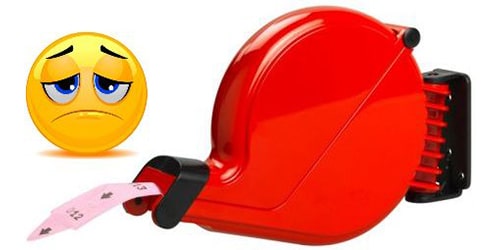Are you nostalgic for the snail that distributes small paper tickets with numbers?
This is your chance to just stand in a queue and be called by a digital board or the shrill voice of the counselor “Number eighty-fiiiiiiiiiive !”
Queue digitization systems were inspired by this principle by distributing virtual tickets with numbers displayed on them.
Here are a few reasons that pushed us to abandon this path from the launch of the DuckTheLine developments. Some were clearly identified at start-up, other use cases could only be discovered after several installations at our customers.

First reason is the quality of reception. Starbucks has understood and applied this for several years. Calling the customer by his first name creates a closeness and incomparable warmth with the treatment of people by numbers. We find it really degrading to call customers or visitors by number, as if they were anonymous, uniform, storable subjects. Next comes the reason for optimizing queue processing. Oddly enough, the organizer will process the queue more efficiently in the order other than simple FIFO. The first reason lies in the length of service and the level of patience of the customers. When we come for a short service, we all want to be treated quickly. You all remember the troublemakers who walk past everyone with a “It’s just for information …”. For a long service, it is easier to accept the wait.
The second avenue of optimization is the management of the skills of advisers. The more experienced can handle complex tasks more effectively. If the system asks for the reason for the visit at the time of entry into the queue, the advisers can “distribute” the customers more efficiently. The processing of the queue is optimized.
